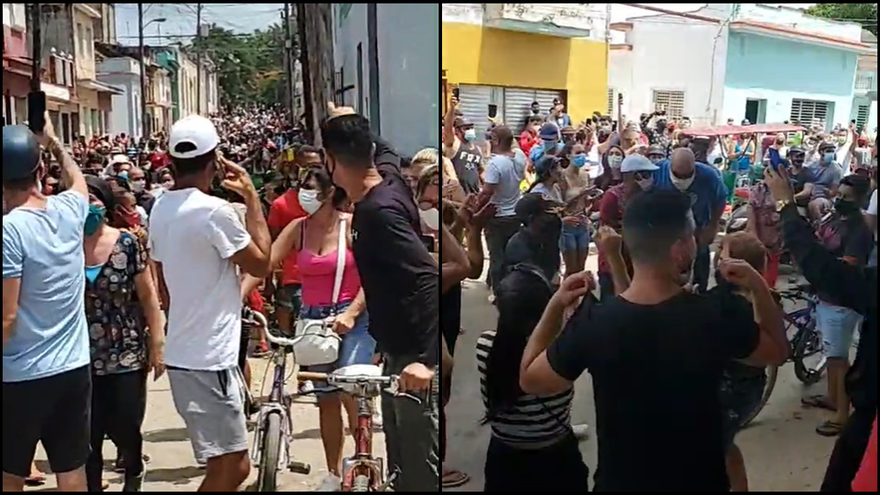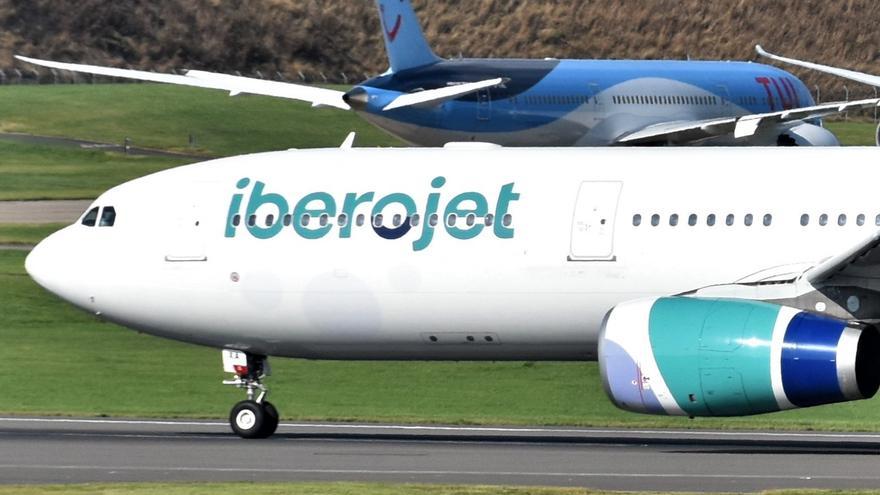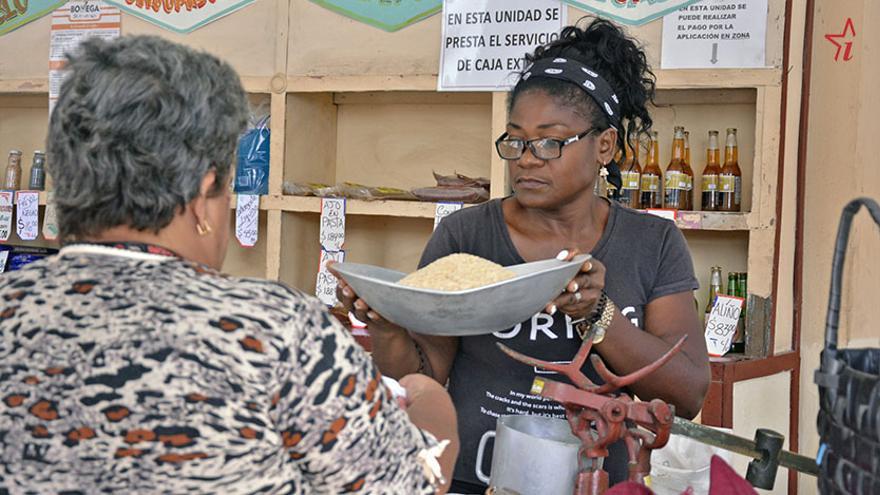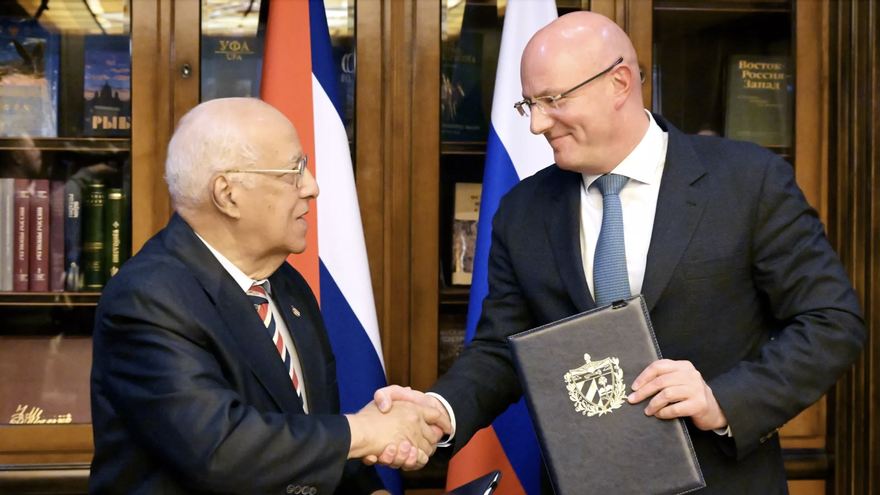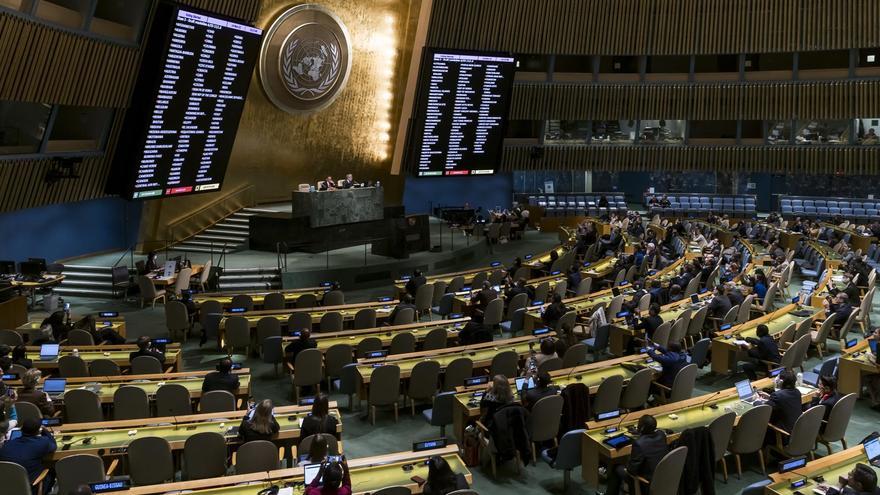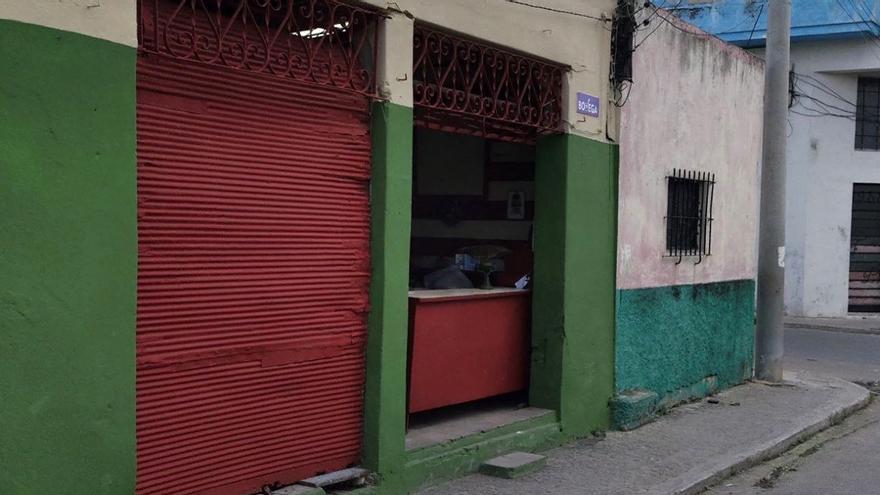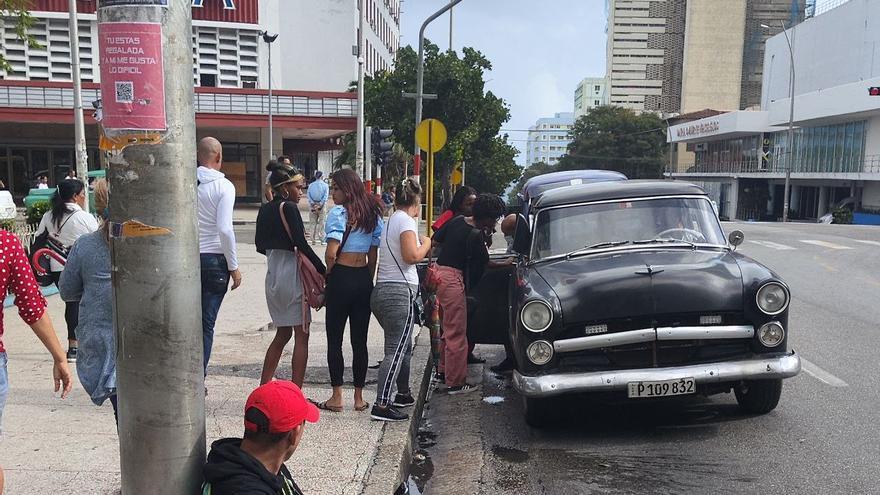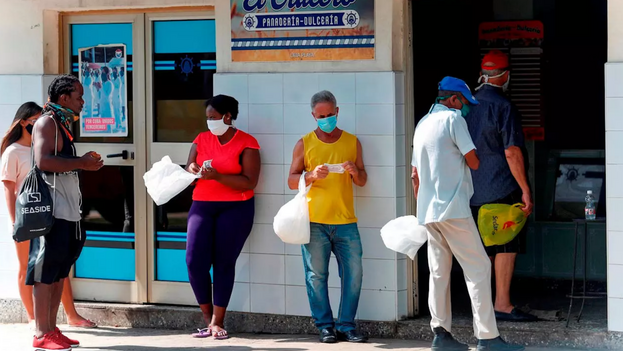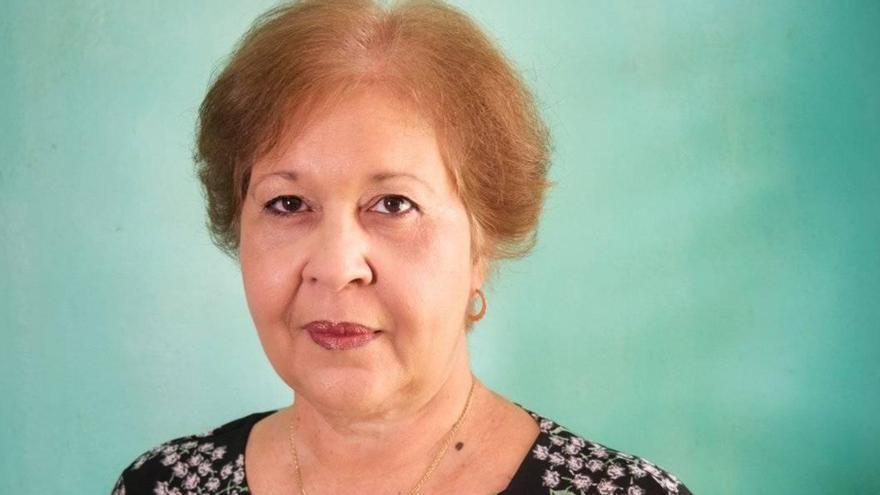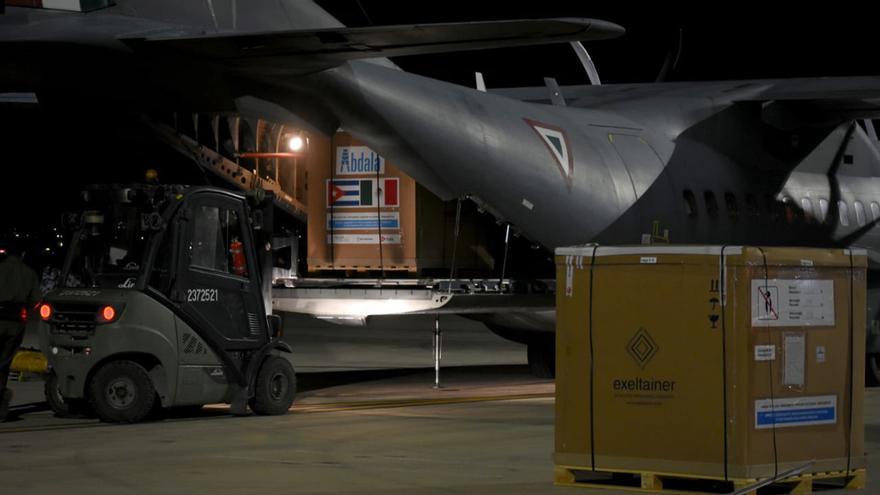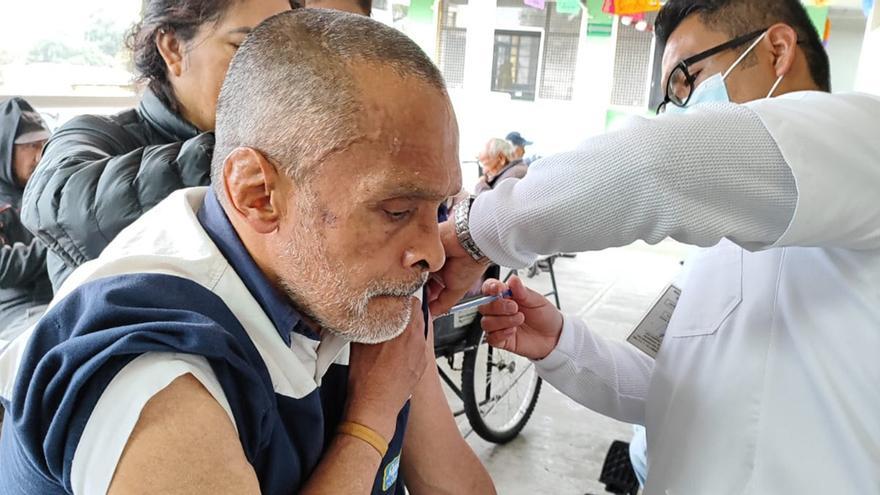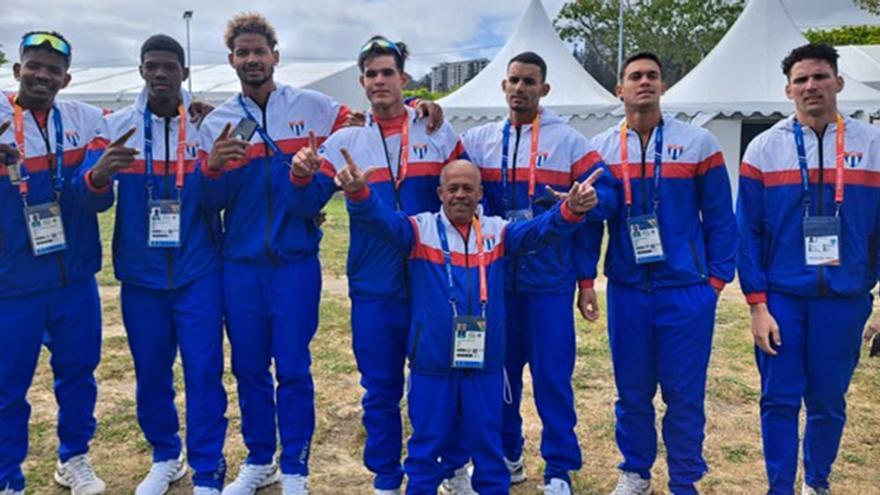So Díaz-Canel now says that “the main call at this time has to be to produce more with our own effort, with our own talent and with our own abilities and potentialities. There is no other way out, because there are no magical measures that can change, from one moment to the next in the short term, the current situation that the country is experiencing.”
What a big lie. Of course there are recipes, and not magical but practical ones, based on the economic rationality alien to communist postulates. The Vietnamese are a good example of this. Something is occurring to the leader of Fidel Castro’s regime. At any moment, he will figure it out, if he hasn’t already. continue reading
According to Díaz-Canel, “in different places there are resources that are not yet taken advantage of, essential to promote popular participation in all processes; therefore, this also starts from having a dialogue, a permanent conversation with our population.” Anything except recognizing that market and private property rights are what’s needed.
And Cubans anxiously wonder, where will those resources come from? And the answer is clear: “From the savings, energy efficiency and adjustment in economic and social activity that were adopted to face the specific situation we had with the fuel deficit.” In other words, by tightening the regime’s belt that permanently suffocates any glimpse of economic activity. Instead of giving flexibility, opening spaces and releasing supply and demand, the communist solution is not to remove the leash but to tighten it even more.
And for this, the most dissimilar and controversial scenarios are proposed, like bakeries finding alternatives to ovens (wood and charcoal), or using transport more efficiently (animal power), both intended to conserve energy. These images envision a terrible return to the worst of the Special Period and the subsequent suffering of the people.
Díaz-Canel justifies those measures, because “they showed a result, because we managed to pass that stage, I would say with fewer effects than those that could exist for the severity that was presented to us in the last weeks of September.” You have to see how little he contemplates the reality that surrounds him. He has no idea.
Energy efficiency and savings become the axis of the communist leader’s speech, who at the same time announced his intention to “rectify everything that has not gone well, listening a lot to what the people propose and constantly attending to the population’s opinions,” and also to “the proposals being made by economists, experts, academics on the possible solutions to face the current situation.” Let’s see if it’s true.
Díaz-Canel believes that “we must demand that institutions fulfill their state functions in all areas, as well as give priority to working in an organized way and breaking the criterion that things are resolved from above, because by solving the problems of the municipality and the community, the problems of the province and the country are solved.”
And this, of course, leads him to the main role in the economy that he hopes to confer on the municipalities, pointing out that “they must work according to the implementation of national policies, provincial policies and municipal policies that are approved and agreed, but with the support, at the level that corresponds to them, of national institutions, provincial institutions and the institutions themselves and the actors that participate at the municipal level.” Someone must have considered that this is not an easy thing to accomplish with all these parts.
The leader also raised the need to “stimulate the production of goods and the supply of services, to produce food, because “that is the first thing that must happen according to the population, with better prices.” Here he returned to dissimilar proposals, such as “you have to produce food with agroecology techniques, knowing that efficiency is not going to be the same, but you have to produce.” That is, knowing that the efficiency will be zero, he insists on hitting the insurmountable wall.
Díaz-Canel said that the main source of food for the population “cannot be what the country imports centrally to distribute with a certain equity or social justice, which sometimes falls into egalitarianism.” Does this mean that non-central import will be used? When? Under what conditions? So that no one can expect anything new, attention is paid again to what happens at the local level, from the local balance sheets to everything else that matters to the country, a commitment to an inefficient technical scale that prevents taking advantage of increasing yields and productivity.
Díaz-Canel, referring to the entrepreneurial sector, believes that “it must be able to take advantage of all the potential that companies have, which is not always taken into account,” but he says this without the slightest knowledge of the forces that govern an economy. Specifically, he says that with the skilled labor they have, when the fuel deficit or other causes prevent them from carrying out their main purpose, they must “look for how other productions and services can be carried out to the population that we are not doing today.” By magic, the communist leader wants companies to do the impossible.
He also talked about promoting the creation of MSMEs [micro, small and medium-sized enterprises] in the state sector. There were a few, and we can see what happened. The more MSMEs believe that they are linked to political power, the greater the shadow of doubt about their belonging and/or relationship with the leadership: a bad business that can jeopardize the entire process of the MSMEs.
Díaz-Canel summarizes all this by saying, “We need businessmen to bet everything on the country, to think like a country, and of course that also carries a demand from the management structures of all organizations.” Nary a word about the institutions and the communist model that govern the economic destinies of the country. Everything is good.
He not only referred to reducing the inequalities in our society but also to the need to stop the exodus of the labor force, especially of the qualified workers. Let there be no confusion: the exodus for Díaz-Canel is the one that occurs from the state sector to the non-state sector.
He insisted on giving priority to health and education and improving the functioning of the social programs that exist in the country. And in an instant of clarity, he spoke of “correcting the measures that have been implemented as part of the Ordering Task* and have shown that they must be modified.”
The rest was last-minute vagueness repeating the same thing about the potentialities one doesn’t want to lose by “working in a different way.” At least he forgot about the blockade. Who knows why.
And of course, Minister Gil is still in office. And for this reason, he took care of presenting the situation of the Cuban economy in September to his colleagues in the council of ministers, glimpsing a gradual improvement in tourism. This was his own data, because the reality is very different, with the hospitality industry at barely 17% occupancy and many private businesses closed due to lack of demand. Playing with the data, when the ONEI [National Office of Statistics and Information] website is under permanent updating, is not very sensible. In the end, a liar can be caught very easily.
According to the minister’s figures, as of September, 1.8 million visitors had arrived in the country, just 75.5% of what was expected, and almost 55% of the figure for the same period in 2019. That is, the level of demand is almost half for that accounting year, when all destinations in the Caribbean have already recovered their pre-pandemic figures.
The even more serious Cuban case has to take into account that since those dates, they haven’t stopped building hotels and rooms, so with less demand and more supply, the occupancy levels, which have to do with profitability in the hotel business, remain at rock bottom. It is not useful that the minister has stated that exports of tourist services grew by some 46% if that increase is really due to prices and not to real activity.
And of course, since there is not much to hold onto, the rest of the minister’s presentation before his colleagues was devastating. Specifically, he said what everyone knows, that the national production of agricultural food has experienced a decrease in deliveries in practically all products, specifically rice, beef, fresh milk and eggs, without specifying figures and alluding only to problems that according to Gil are related to the deficit of inputs and fuel, low productivity, performance and organization.
And after saying all this, what should a responsible minister do? What should be done in a democratic and free country? Of course, never applaud or show solidarity with terrible management, but question and ask for explanations. Does anyone believe that this happened in the Council of Ministers or in the Cuban press? Not even in your dreams.
Without recognizing his own responsibility, the minister continued to ask for “greater self-management in the municipalities to support the population’s demand for food,” a suicidal strategy that this blog has warned about on numerous occasions, which also must be linked to the Economy Plan,” undoubtedly the main failure of the Cuban communist economy.
And since there was not much more to say about the situation of the economy, the council of ministers approved a new portfolio of foreign investment opportunities in the country, the umpteenth, which now aims to channel 729 projects, of which 139 were presented by local governments. This covers a lot, puts on the pressure, and for reasons exposed in this blog and in other posts, the portfolio of opportunities does not ensure foreign investment. Experience confirms it.
As much as the regime wants foreign investors to put their money into projects “to supply the domestic market with basic necessities and supplies,” the truth is that foreign capital is not on the same wavelength. The mismatch of criteria means that investment levels do not meet the needs of sectors such as food production, industry, mining, transport and logistics, among others. There is no point in opening the economy to foreign capital if the communist regime, first, does not put it at the service of Cubans.
*Translator’s note: The Ordering Task is a collection of measures that include eliminating the Cuban Convertible Peso (CUC), leaving the Cuban peso (CUP) as the only national currency, raising prices, raising salaries (but not as much as prices), opening stores that take payment only in hard currency, which must be in the form of specially issued pre-paid debit cards, and a broad range of other measures targeted to different elements of the Cuban economy.
Translated by Regina Anavy
____________
COLLABORATE WITH OUR WORK: The 14ymedio team is committed to practicing serious journalism that reflects Cuba’s reality in all its depth. Thank you for joining us on this long journey. We invite you to continue supporting us by becoming a member of 14ymedio now. Together we can continue transforming journalism in Cuba.
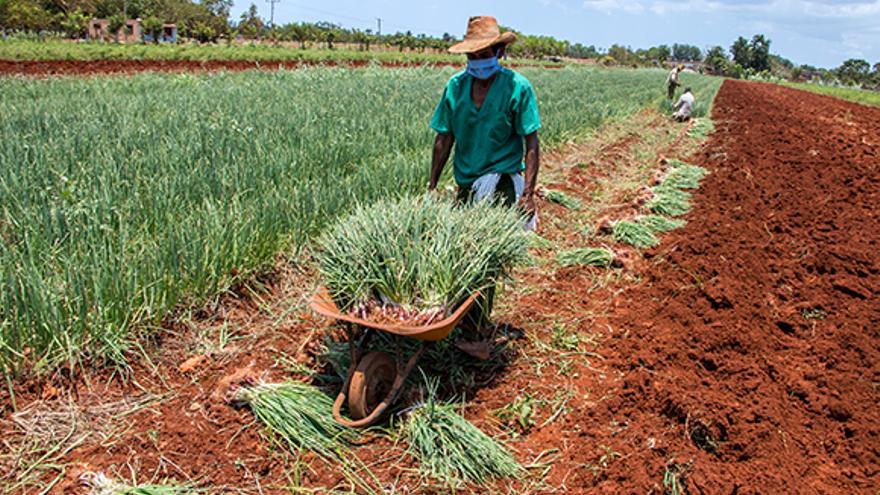
![]() 14ymedio, Madrid, 3 November 3, 2023 — The authorities of Alquízar, in Artemisa, admitted what their inhabitants had been complaining about for months: the food sovereignty plan is a failure, and they so informed the vice president, Salvador Valdés Mesa, who attended a meeting where the production problems were enumerated.
14ymedio, Madrid, 3 November 3, 2023 — The authorities of Alquízar, in Artemisa, admitted what their inhabitants had been complaining about for months: the food sovereignty plan is a failure, and they so informed the vice president, Salvador Valdés Mesa, who attended a meeting where the production problems were enumerated.
